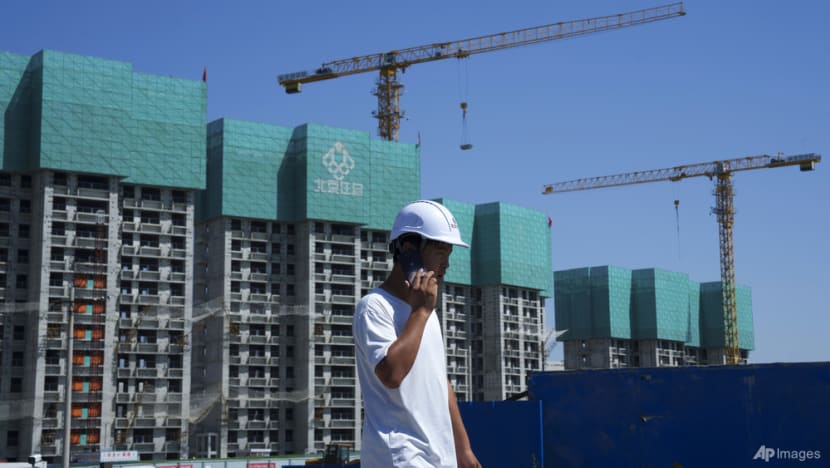Commentary: China’s debt divide is hurting its economy
China’s refusal to surrender control to local government or take on more responsibility is key to the country’s challenges, says Robin Harding for the Financial Times.

HONG KONG: In 1975, in what turned out to be the valedictory speech of his long and tumultuous career, Zhou Enlai, the first premier of the People’s Republic of China, declared proudly that his government was free of all debt.
“In contrast to the economic turmoil and inflation in the capitalist world,” he told the National People’s Congress, “we have maintained a balance between our national revenue and expenditure and contracted no external or internal debts.”
Almost half a century later, that attitude is still written on the hearts of finance ministry bureaucrats in Beijing. China’s central government debt has crept up to about 24 per cent of gross domestic product, which is minimal by global standards, and the leadership is deeply reluctant to let it climb higher. Yet in contrast, the debts of China’s local governments are vast - 93 per cent of GDP according to IMF figures, which are probably an underestimate - and rising.
This division between central and local government, and the desire of one to have control but not responsibility with respect to the other, is fundamental to the economic challenges of China today.
PRESSURE ON LOCAL GOVERNMENTS
A basic fact about China’s fiscal system is that local governments do almost all of the spending, but rely on the centre for revenue to an extent that is rare elsewhere in the world.
Localities bear most of the responsibility for education, health, social security and housing, in addition to obvious local duties such as roads, parks and rubbish collection, and spend about 85 per cent of the government total. They directly collect only around 55 per cent of government revenues. The system is balanced by transfers from the centre to the regions.
In a country as large as China there are merits to devolving decisions closer to the people, but the mismatch between revenue and expenditure creates many problems. For example, the lower down the pyramid of governance, the more the system gets starved of resources, because each tier - province, prefecture, county - tends to hold back what it needs before passing cash onwards down the chain. The implementation of central government spending plans is haphazard.
Meanwhile, local government officials, who must deliver growth to climb the bureaucratic ranks, do whatever they can to find money.
China’s property boom was partly driven by the reliance of local governments on land sales for revenue. Off-the-books borrowing by so-called local government financing vehicles was a way to get around the revenue constraint and fund infrastructure.
As land sales slump due to the housing slowdown, and the central government cracks down on local borrowing, there are many reports of municipalities resorting to fines and penalties, launching retrospective tax investigations or simply not paying staff on time as they struggle to balance their books. None of this is good for the struggling private sector.
Beijing knows all about these structural problems and has long aspired to fix them. Indeed, when Xi Jinping first came to power in 2012, fiscal reform was a big part of his domestic policy agenda, elements of which he delivered. Part of the reason why local governments are struggling, for example, is the success of reforms to budgetary management and financial administration, which made it harder to paper over problems by shifting them off the books.
What the central government has not been willing to do, as is typical for Xi, is surrender control. It often specifies the services that local governments must provide, yet declines to hand over the revenue sources that fund them. It is reluctant to take big new spending responsibilities onto the central books.
It has cracked down on local government debt, and yet true to Zhou’s preferences, it is unwilling to let central government debt rise instead. The result has been a de facto fiscal tightening during the past few years even as the economy has struggled to recover after COVID-19.
CENTRALISATION AND THRIFT
At the recent third plenum, an important meeting for economic policy held once every five years, Beijing promised to change this. It said it would give local governments more control over taxes and increase fiscal transfers from the centre. It will consider rolling various local surcharges into a single local tax.
It will move the liability for consumption tax from manufacturers to retailers and let local governments collect it, which would be an important reform. Where the central government has more fiscal power, it will “raise the proportion of central government expenditure accordingly”.
This is exactly what is needed. Yet China has set out a similar direction of travel in the past, not least during lengthy debates about whether to introduce property taxes, a natural way for local governments to fund local spending. If Beijing is actually going to implement these plans, it will have to surrender some control, and if it is to do so while reviving the stagnant economy, it will also have to accept a rise in the central government’s debt.
In the peroration of his 1975 speech, Zhou made several other declarations. “We must resolutely support the centralised leadership of the party,” he said. “We must work hard, build the country and run all undertakings with diligence and thrift.”
Centralisation and thrift: Neither is an easy habit to surrender, and in that lies the challenge.
















